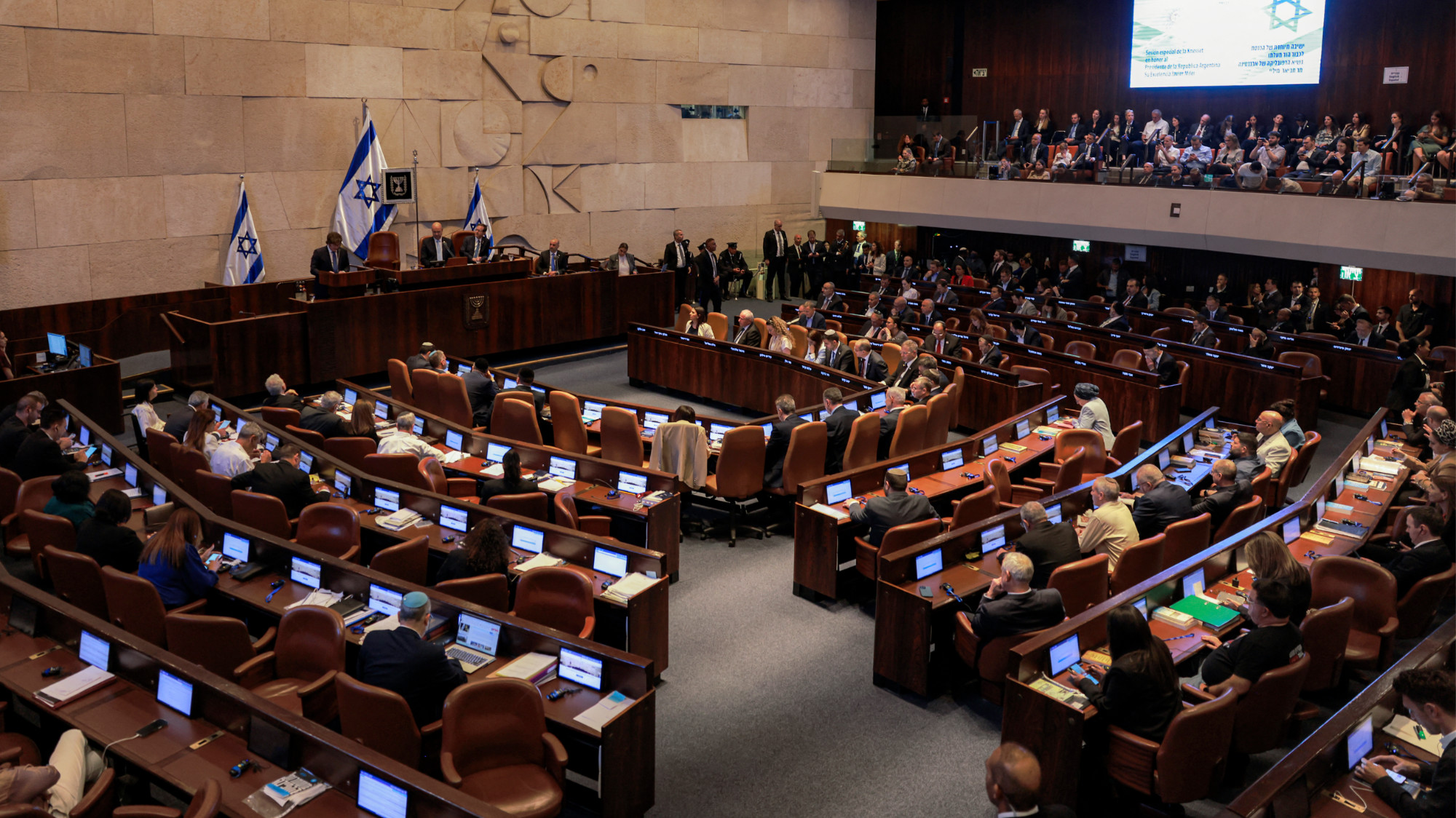Israels coalition survives vote to dissolve parliament over army draft tensions

Israel’s governing coalition narrowly survived a no-confidence vote on Thursday, following a last-minute effort to convince ultra-Orthodox parties to withdraw their support for a motion to dissolve parliament.
Tensions had been running high for days, with Shas and United Torah Judaism (UTJ) threatening to back the move to topple the government and trigger early elections.
The political crisis was sparked by the government's failure to pass legislation exempting ultra-Orthodox Jews from military service - a long-standing demand of both Shas and UTJ.
Likud MP Yuli Edelstein, chair of the Knesset Foreign Affairs and Defence Committee, said that compromise with the religious parties was reached late on Wednesday.
"I am pleased to announce that after long deliberations we have reached agreements on the principles on which the draft law will be based," said Edelstein.
New MEE newsletter: Jerusalem Dispatch
Sign up to get the latest insights and analysis on Israel-Palestine, alongside Turkey Unpacked and other MEE newsletters
"This is historic news, and we are on the way to a real correction in Israeli society and the establishment of the security of the State of Israel."
'Anyone living in Israel could have guessed that the issue of conscription would explode'
- Pnina Pfeuffer, ultra-Orthodox activist
According to the temporary arrangement, thousands of ultra-Orthodox are expected to enlist in the army in the coming years.
Those who do not study in yeshivas, Jewish religious schools, and will not enlist will face sanctions such as revocation of car licences, cancellation of subsidies for academic studies, and a ban on leaving the country.
Despite the agreement, two representatives of the Hasidic wing in the UTJ voted in favour of dissolving parliament.
The agreement was criticised by opposition leaders.
"Tonight, the Israeli government once again chose evasion instead of Zionism," Avigdor Liberman, leader of Yisrael Beiteinu party, said. "Once again, it puts politics above national and security interests, it abandons those who serve and enlist for the sake of those who evade."
Ultra-Orthodox pressure
The prospect of ultra-Orthodox men being conscripted into the Israeli army has placed sustained pressure on the leadership of the ultra-Orthodox parties, according to Pnina Pfeuffer, director general of the Ultra-Orthodox Public Organisation, a civil society group working within Haredi communities.
"Aryeh Deri, the leader of Shas, does not want to bring down the government, but the party's leading Torah scholars are more open to the idea," Pfeuffer told Middle East Eye ahead of Thursday night’s vote.
She was referring to internal tensions within Shas - a party rooted in the Mizrahi Jewish community, which traces its origins to the Middle East and North Africa.
"Shas is under the most pressure because they know their communities face the greatest threat of being drafted," Pfeuffer added, linking the issue to longstanding discrimination against Mizrahi Jews in Israel.
UTJ, the other major ultra-Orthodox party - which comprises both Lithuanian and Hasidic factions - has "been forced to align with Shas’s demands," according to Pfeuffer.
Another key factor, she said, is the worsening economic situation within ultra-Orthodox society, driven by fears of financial sanctions being imposed on draft evaders.
"The legitimacy of ultra-Orthodox parties depends on their ability to protect the yeshiva world. No party can afford to be seen as agreeing to military conscription," Pfeuffer told MEE.
Shortage of manpower
Since the outbreak of Israel’s war on Gaza, a heated public debate has erupted over the potential conscription of ultra-Orthodox men, who have traditionally been exempt from military service.
Last year, Israel’s High Court ruled that the government must begin drafting ultra-Orthodox youth, challenging long-standing arrangements.
The ruling comes as the military faces a shortage of manpower, with officials saying they need an additional 10,000 soldiers.
Earlier this week, the army’s human resources directorate announced plans to issue 54,000 conscription orders to ultra-Orthodox men, in line with instructions from Attorney General Gali Baharav-Miara.
Despite the mass issuance of draft notices, the military has so far succeeded in attracting only a small number of Haredi recruits and continues to struggle with enforcing penalties against draft evaders.
According to Pfeuffer, ultra-Orthodox Jews have long been vocal in their objection to conscription, but their leadership suffers from lack of long-term planning.
"Anyone living in Israel could have guessed that the issue of conscription would explode," she said.
middleeasteye.net